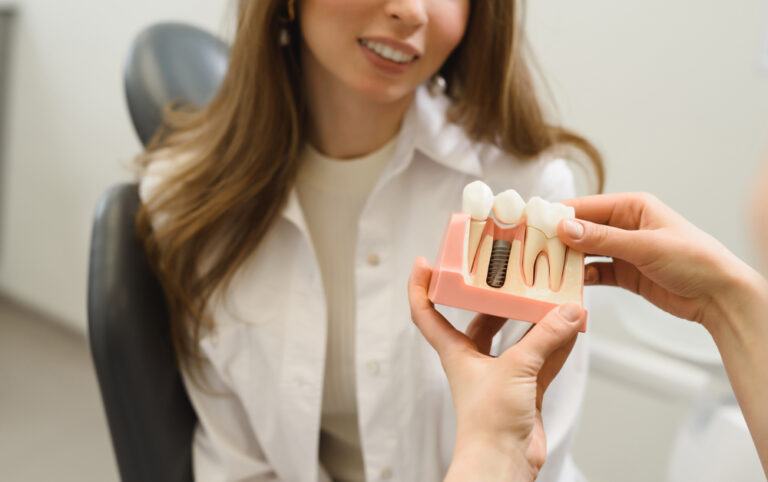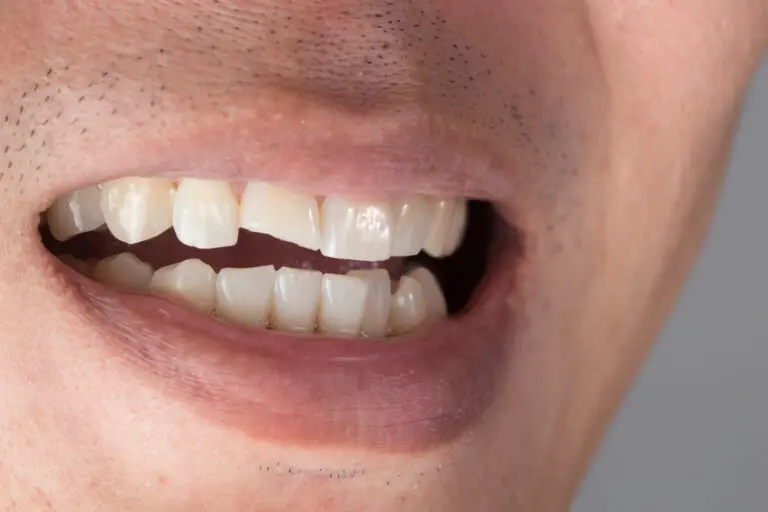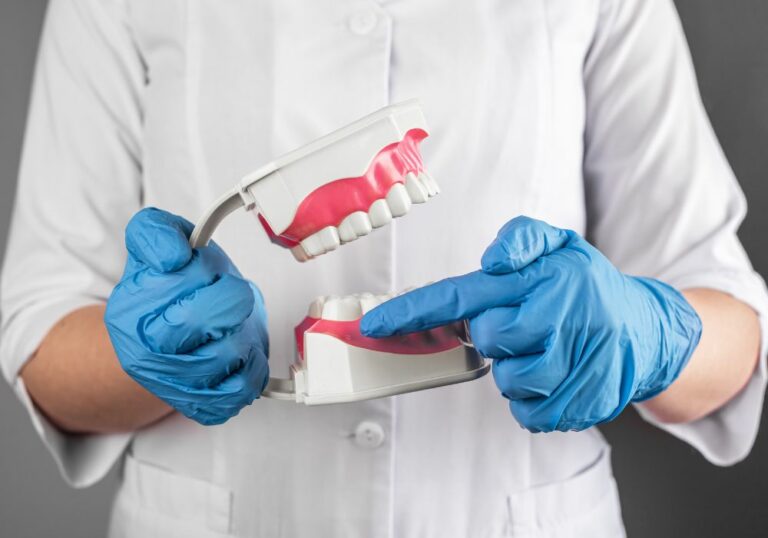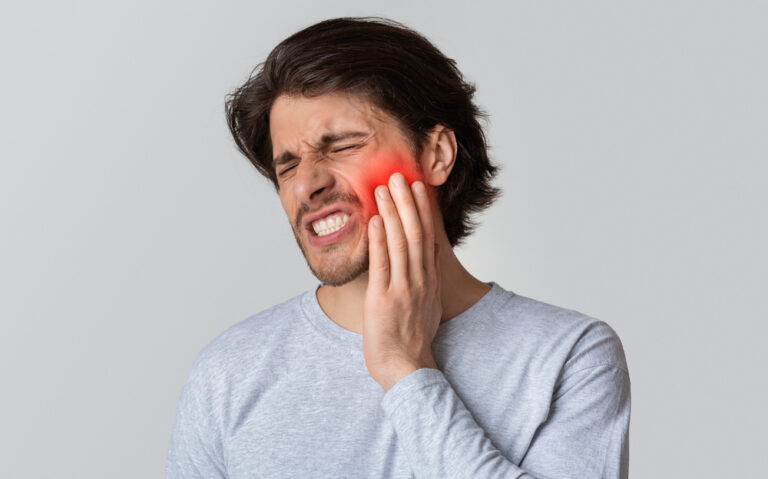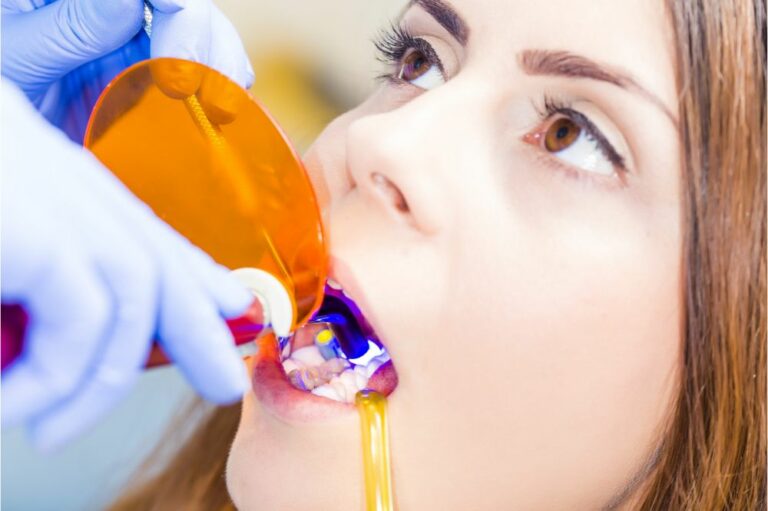Dealing with a dental cyst is a painful experience. It affects your teeth, gums, jaw, and some portions of the face – making it impossible to eat or speak without crying out in pain.
If you’ve developed a cyst in your mouth, it’s important to seek professional dental care immediately. But, if you’re unable to access a dentist right now, you can try different home remedies to ease the pain.
In today’s post, we will discuss how to treat a dental cyst at home in great detail. From the causes of a dental cyst to tried-and-tested home remedies, here is everything you need to gain temporary relief. Read more!
What is a Dental Cyst?
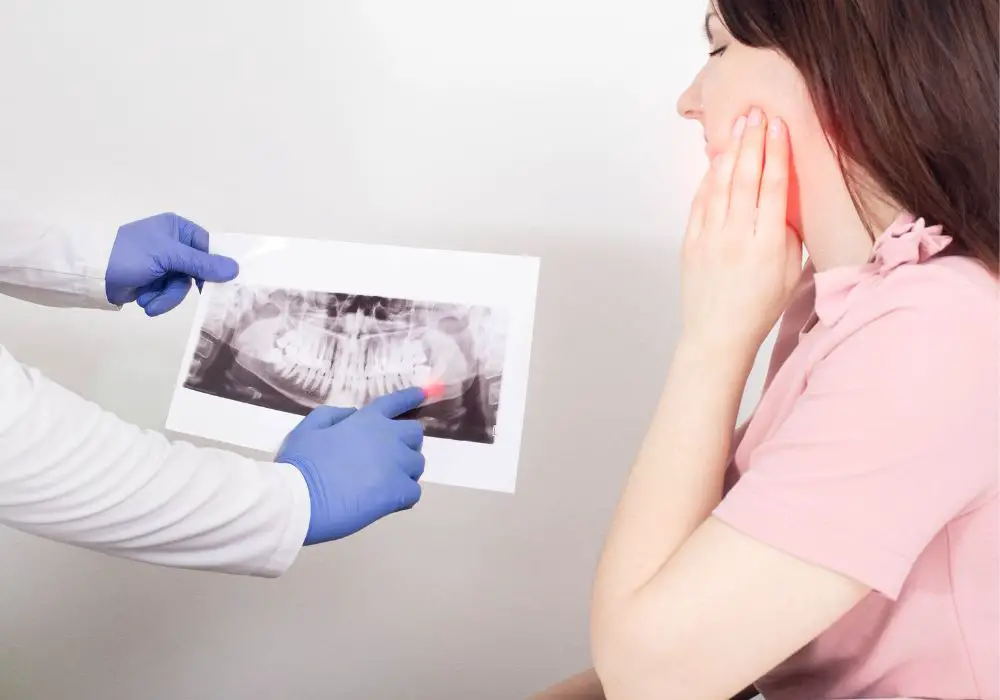
Dental cysts are fluid-filled sacs that can develop in various areas of the mouth, including the gums, jawbone, or around the teeth roots. They start as small bumps and gradually grow into noticeable, painful boils.
Some other symptoms include tenderness, teeth sensitivity, and the feeling of pressure in the affected area. When left untreated, the cyst can create gaps between teeth, displace them, and even make them fall out.
If the cyst is present on the gums, it can worsen the condition to a point where your gums are constantly red and bleeding. Moreover, in extreme cases, a cyst may put pressure on the nerves and make portions of your face numb.
Possible Causes of Dental Cyst
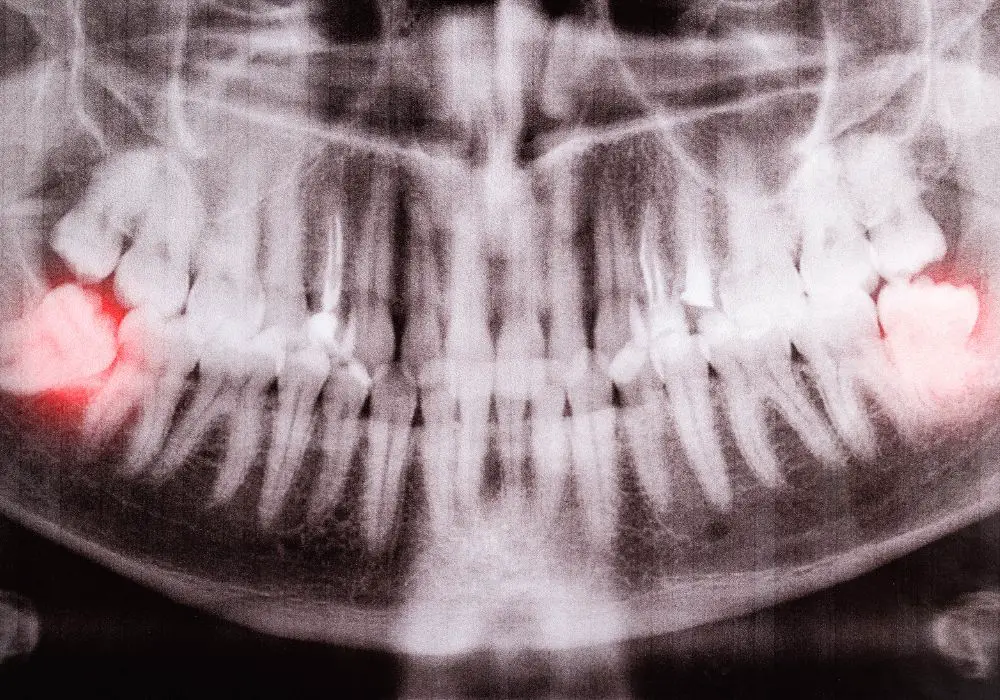
There are multiple different reasons why a cyst forms in your mouth. Here is an overview of the most common ones:
1. Impacted Tooth
An impacted tooth refers to a tooth that fails to fully emerge or erupt through the gum line. This commonly occurs with wisdom teeth or other permanent teeth that have limited space to grow (overcrowding).
When a tooth becomes impacted, it can create a space where fluid accumulates. This leads to the formation of a cyst around the impacted tooth.
2. Pulp Inflammation
Tooth decay or extensive dental procedures (like root canal treatment) can cause inflammation in the pulp. This is the innermost part of the tooth that contains nerves and blood vessels. It is often examined using an X-ray and tests.
So, if the inflammation spreads beyond the pulp and affects the surrounding tissues, it can trigger the formation of a dental cyst.
3. Trauma
Physical trauma to the teeth or jaw can also form a dental cyst. It doesn’t matter how small the trauma might seem. Even a light punch to the jaw can trigger the body to create a cyst in an attempt to isolate and contain the damage.
Some other types of physical traumas include accidents, sports injuries, and even aggressive dental procedures.
4. Gorlin’s Syndrome
Also called nevoid basal cell carcinoma syndrome (NBCCS), Gorlin’s syndrome is a rare genetic disorder characterized by skin cancer and various developmental abnormalities. Dental cysts are also common in people with Gorlin’s syndrome.
This is because the disorder causes the PTCH1 gene to mutate. Since PTCH1 is responsible for regulating cell growth, the mutation leads to abnormal dental growth. Improper teeth and gaps allow cysts to form easily.
Difference Between a Dental Cyst and Abscess

Most people confuse a dental cyst with an abscess because both dental conditions involve the formation of a pus-filled sac. But, if you look at them closely, there are significant differences between the two.
A dental cyst is a fluid-filled sac that develops within the gum, jawbone, or around the roots of a tooth. It usually forms as a small, painless bump and may go unnoticed for a long time until it grows larger.
Once it turns into a noticeable boil, you will be experiencing moderate to intense pain along with several dental complications. These include tooth sensitivity, displacement, gum swelling, jaw stiffness, and even face numbness.
Comparatively, a dental abscess is painful from the start. It is a localized infection that typically occurs at the root of a tooth or in the gum tissue. So, you may experience throbbing pain, swollen gums, and tenderness in the affected area.
Also, the abscess is formed when bacteria invade the tooth pulp or surrounding tissues. The bacterial infection triggers the development of a pus-filled sac, whereas a dental cyst can occur due to multiple reasons.
8 Best Home Remedies to Treat a Dental Cyst Pain

Now that we have discussed the differences between a cyst and a tooth abscess in detail. We hope you are confident that the bump in your mouth is actually a cyst. If yes, try out these amazing home remedies to get rid of dental cyst pain instantly!
1. Warm Saltwater Rinse
Saltwater is a traditional remedy that helps draw out bacteria using osmosis. When the salt particles come in contact with the affected area, the cell liquid moves out with the bacteria. This lessens the pain and swelling.
To use this remedy, dissolve half a teaspoon of salt in a glass of warm water. Rinse your mouth with this solution for about 30 seconds – several times a day.
2. Herbal Tea
Surprisingly, tea does more than just numb the pain with the hotness. Herbal teas, like chamomile and fenugreek tea, have natural anti-inflammatory properties too. This reduces the swelling and stiffness of the dental cyst.
To use this remedy, brew a cup of your preferred herbal tea. Soak a clean fabric or cotton swab in the warm tea and apply it to the external area of the cyst. Be very gentle with your movements to avoid popping the cyst.
3. Ice Compress
Just like heat numbs the pain, cold restricts the blood vessels and reduces the waves of pain felt throughout the affected area.
To use this remedy, wrap a few ice cubes in a thin towel and apply them to the surrounding areas of the cyst for about 10 minutes. Avoid applying them directly to the skin to prevent potential frostbite.
4. Clove Oil
Clove oil has natural analgesic and antibacterial properties. It can temporarily relieve the pain and stop the discomfort. You can also substitute it with thyme oil or oregano oil.
To use this remedy, take a cotton ball and soak it in clove essential oil. Gently dab the cotton ball on the cyst, focusing on the affected area. But avoid direct contact with the gums or mucous membranes as it may irritate.
5. Tea Tree Oil Mouthwash
Tea tree oil is another option with antimicrobial properties. It can help reduce swelling in the gums and fight any kind of bacterial infection. However, you should not apply it topically as it can cause extreme irritation in some people.
To use this remedy, add a few drops of tea tree oil to a cup of warm water. This will dilute it a bit and make it easier to use as a mouth rinse. Take a huge sip, swish it around, and spit it out.
6. Turmeric Paste
Turmeric is a spice traditionally known for its medicinal properties. It contains curcumin – a compound with anti-inflammatory and antimicrobial effects. This means it improves your overall dental condition.
To use this remedy, mix a tablespoon of turmeric powder in a cup of water or carrier oil (like coconut oil). This ratio will help create a thick paste that you can directly apply on the cyst and leave it for 10 to 15 minutes. Rinse your mouth thoroughly with fresh water to remove residues.
7. Aloe Vera Gel
Similar to turmeric, aloe vera has certain compounds that help soothe dental pain and heal the cyst. It has virtually no side effects, which makes it a suitable option for those with allergies and sensitive skin.
To use this remedy, extract aloe vera gel from the plant leaves or purchase it from a local plant shop. Apply the gel directly on the pocket of pus and let it rest for up to 15 minutes. Rinse your mouth afterward.
8. Over-the-Counter Medications
If nothing works, you can always get OTC painkillers from the pharmacy. Some popular options include ibuprofen, acetaminophen, advil, motrin, and Tylenol. But if you’ve other medical complications, it’s best to consult a professional for what medicines might suit you.
Important: You Still Need Professional Dental Care!
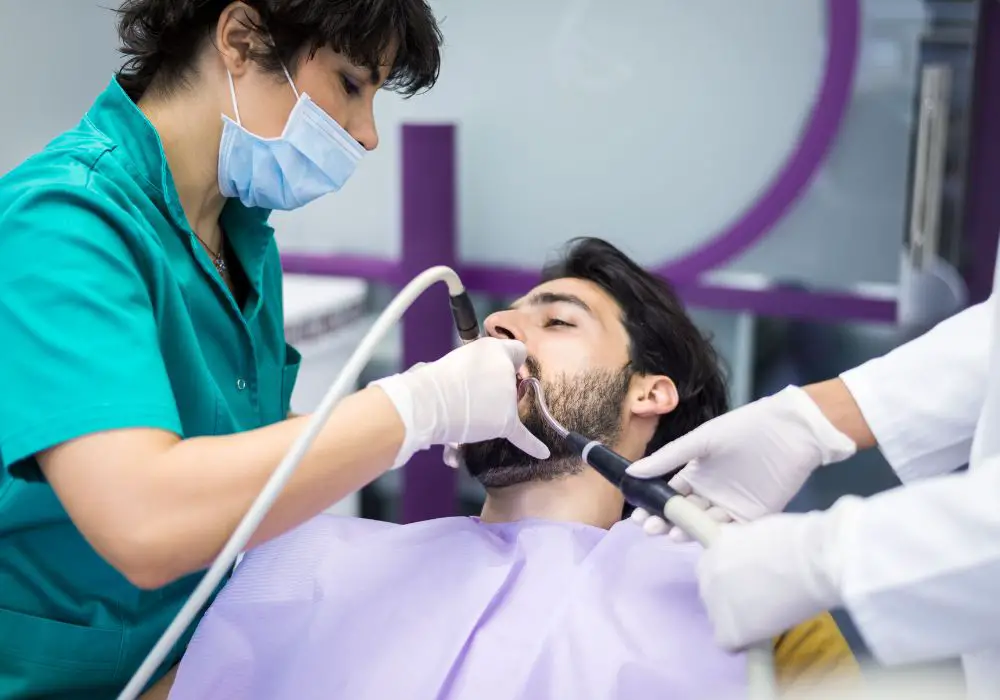
While we have offered you home remedies to treat dental cysts, please remember that they aren’t a substitute for professional treatment. A dental cyst is a serious condition with painful effects.
It requires accurate diagnosis, proper treatment, and long-term management to prevent complications. Sometimes, a dental cyst removal may require surgery. Only a dental professional can do that!
They can also identify related issues and how to deal with them in your specific case. You see, everyone has unique dental conditions and the dentist helps resolve them through tailored treatments. So, never miss out on going to the dentist!
Last Words
Dental cysts aren’t very painful in the start, but as they mature, the pain becomes unbearable. If you’re one in the mouth right now, here’s how to treat a dental cyst at home:
- Saltwater rinse
- Herbal tea
- Cold compress
- Clove oil
- Tea tree oil mouthwash
- Turmeric paste
- Aloe vera
- OTC medications
Once you’ve used these home remedies to relieve the pain, get in touch with a dental expert and consult them for a permanent solution. If you don’t do so, the cyst may form again and again – often with more dental complications.

